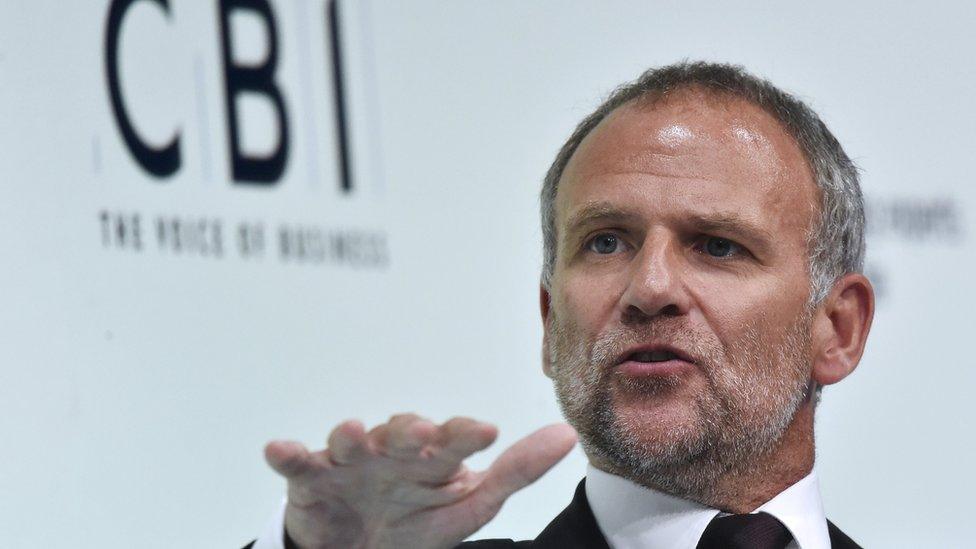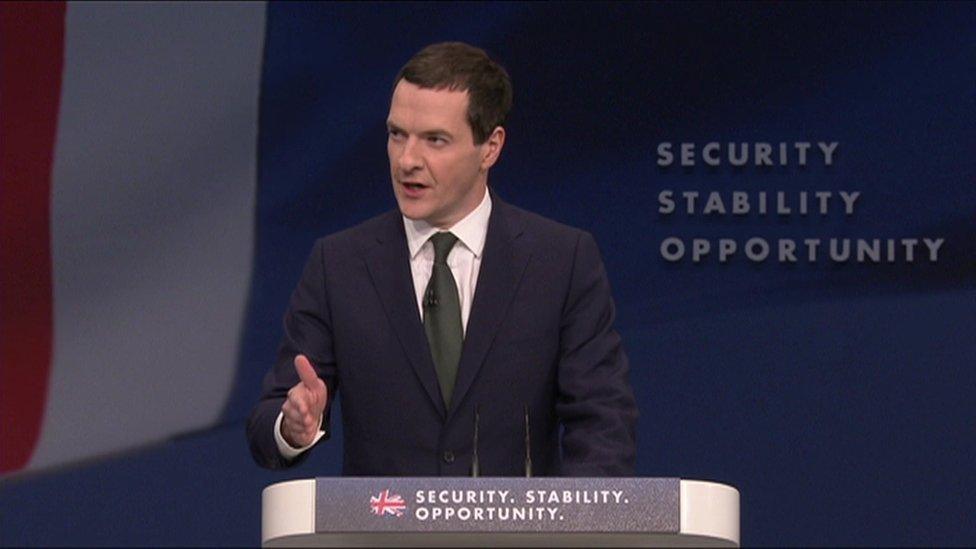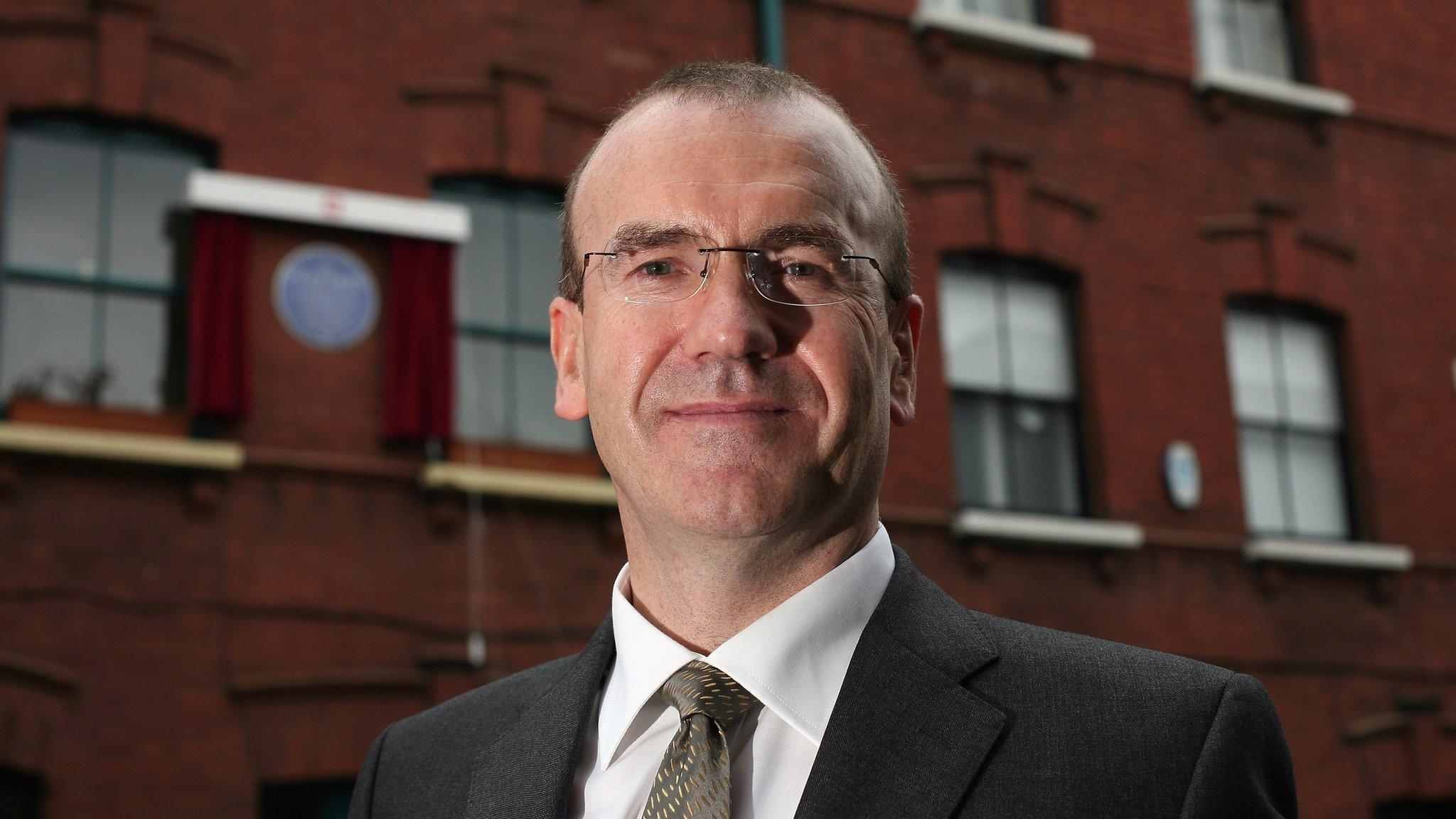Tesco chief warns of 'lethal cocktail' for retailers
- Published

The head of supermarket Tesco has warned retailers face a "lethal cocktail" of tax and costs at a time of slumping profits.
Chief executive Dave Lewis said the retail industry faced £14bn of extra costs in the next five years.
Business rates and the new national living wage are among extra outgoings.
He complained of the "unintended consequences" of policies such as the new £7.20 an hour living wage for adults next April.
Tesco shares closed down 1.8% at 175.25p on Tuesday, bringing the fall in the stock to more than 14% in the past month.
"Profits are down but business rates are up," he said in a speech at the Confederation of British Industry's conference. "It is the biggest tax we have and is three times the OECD average."
He claims Tesco's own rates bill has risen more than 35% in five years.
Pay and benefits
"For every £1 we pay in corporation tax large UK retailers pay £2.31 in rates. It is unsustainable."
Tesco says its pay and benefits "is already significantly above the new voluntary living wage rate" but Mr Lewis said pressure to increase basic pay at the expense of other benefits "is not the answer".
The retailer paid about £8.80 for the lowest-paid staff outside London if benefits are included, he said.
Rising costs come at a time of deflating food prices, hitting Tesco's and other big supermarkets' profits.
'Damage by accident'
Mr Lewis said he would like closer negotiations between the retail industry and the government on proposed policy or changes such as rates, the living wage and the apprentice levy.
"The impact of the retail sector on our wider economy is absolutely massive. We need to be careful we don't lose or damage some of that almost by accident."
Shops, offices, factories and businesses currently pay a uniform business rate set by central government.
Councils collect the tax and send the funds to the Treasury, which then redistributes them so that areas with fewer businesses do not lose out. Since 2013 local councils have been able to keep up to half.
Councils in England will be able to keep the proceeds from business rates raised in their area under plans unveiled by Chancellor George Osborne.
- Published5 October 2015

- Published25 February 2014
